|
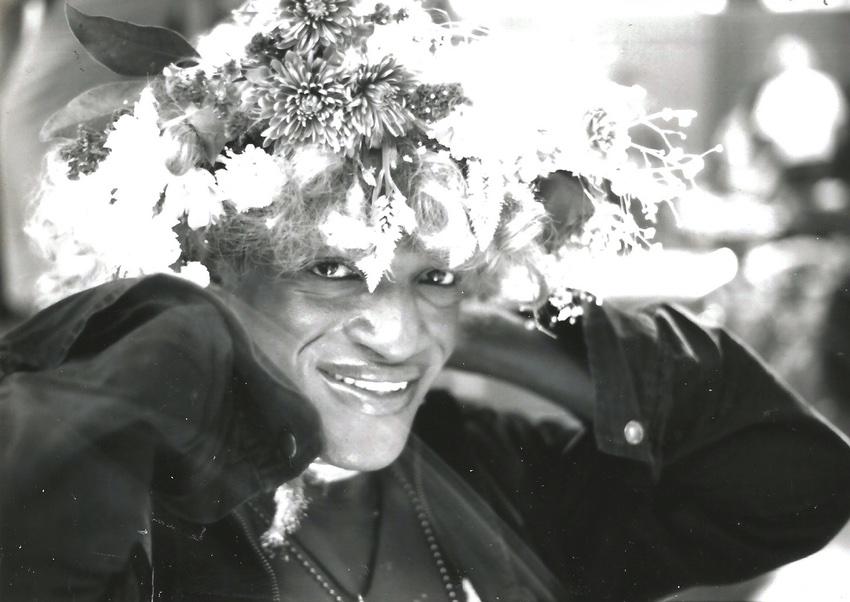
|
This page was created to support research at the intersections of gender and race within the DTA's collections. On this page you will find information about how race figures into our collections and tips for finding items related to trans and gender non-conforming Black, Indigenous, and People of Color (BIPOC) in the United States and Canada. To support researchers who are seeking additional sources beyond the DTA, we also host another resource: Researching BIPOC Trans Histories: A Historical Research Guide.
|
|
|
THE ERASURE OF PEOPLE OF COLOR IN TRANS AND GENDER-NONCONFORMING HISTORIES
|
Transgender history is dominated by the experiences of white trans and gender nonconforming people. This is caused by systems of oppression that have marginalized trans and GNC people of color for centuries. As a result, historical materials related to people of color who transgressed gender norms have been less likely to be considered "historical" and worthy of preservation and archiving. Even when materials have been archived, search terms identifying a person’s race and/or gender transgressive behavior may not have been added to descriptions of those materials, essentially making them hidden. The combined effects of racism and transphobia have caused widespread erasure and silencing in historical records.
The DTA is currently leading a CLIR grant funded 10-member collaboration to digitize a wide range of materials documenting transgender, gender non-conforming, and gender-expansive Black and Indigenous people and people of color (BIPOC). Our hope is that this initiative will inspire deeper connections between archives and trans BIPOC communities, ideally resulting in increased donations to archives and subsequent efforts that similarly seek more equitable archival representation.
|
| |
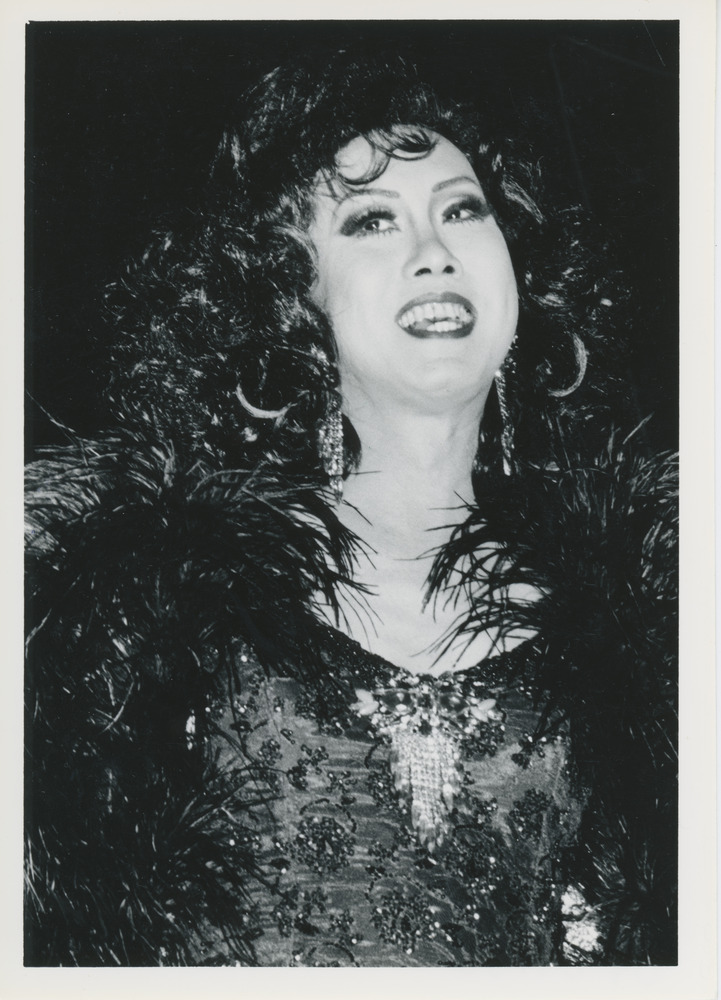
|
|
|
HOW WE ADDRESS RACE AND ETHNICITY IN THE DTA
|
It can be difficult to know a person's racial or ethnic identity, particularly when we have such limited traces of their lives. Because racial and ethnic identities are not simply determined by a person's skin tone or appearance, we are cautious about making assumptions about individuals' identities when we are interpreting materials. Yet when we add materials to our site, we are challenged by how to best describe each item without mislabeling the people involved. In keeping with our Describing Objects Policy, we avoid adding specific subject terms related to race or ethnicity based on assumptions in order to keep from misrepresenting anyone. Unfortunately, this means that materials that feature people of color and materials that relate to racial and ethnic experiences may not always be clearly described as such or may lack specificity. Even as we discuss this topic here, we alternate between using "people of color" (commonly used in the U.S.) and "non-white" (more often used globally).
Given the dynamic landscape of terminology related to race and gender, it is helpful for contemporary researchers to maintain both a generous spirit and a critical awareness of context, keeping in mind that they will encounter historical terms that may be considered offensive or less progressive than the terms that are more common now. Researching BIPOC trans history may require adopting the language of the time period and place of interest in your search. With that said, when tagging and describing objects on the DTA, we strive to balance maintaining the historical integrity of the item with reducing the circulation of harmful language.
|
| |
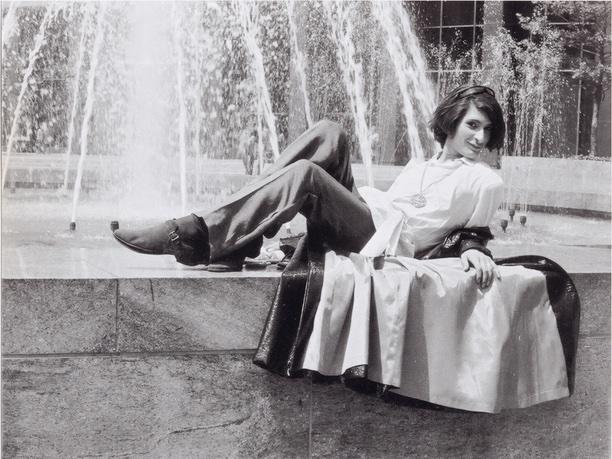
|
|
|
|
|
A FEW COLLECTIONS RELATED TO NON-WHITE TRANS PEOPLE TO EXPLORE
|
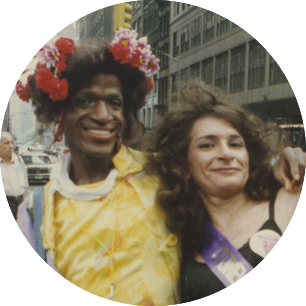
|
The Marsha P. Johnson & Sylvia Rivera collection includes hundreds of items related to two iconic trans women of color who advocated for the rights of all LGBTQ+ people, particularly trans people of color, youth, sex workers, and those experiencing homelessness in New York City.
|
|
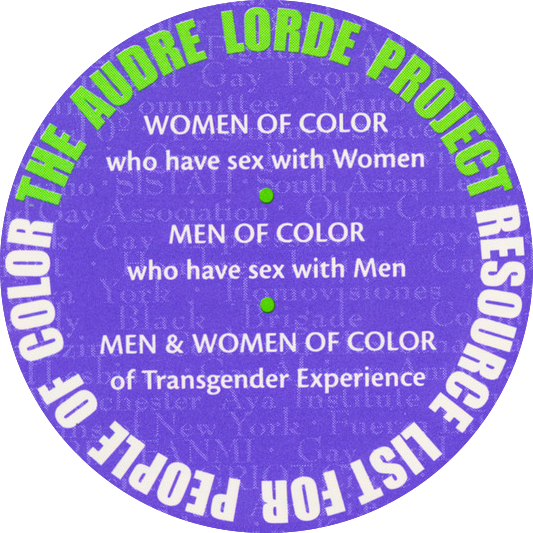
|
The Audre Lorde Project (ALP) was founded in 1994 as a community organizing center for Lesbian, Gay, Bisexual, Two-Spirit, Trans and Gender Non Conforming (LGBTSTGNC) People of Color. This collection contains periodicals, leaflets, event programs, and other written works by the ALP, including multiple issues of their newsletter The Missive.
|
|
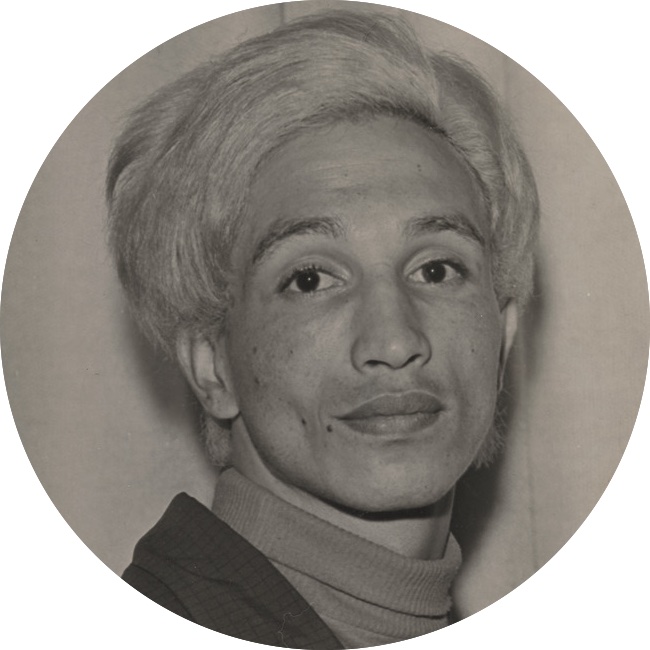
|
The Kewpie photographs collection documents Kewpie’s life in District Six, Cape Town, South Africa between 1950 and 1993. This collection contains pictures of Kewpie working in salons as a hairdresser, attending parties and costume balls, and posing for photos outside on streets and beaches with her friends and her partner, Brian.T
|
|
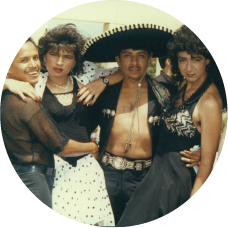
|
The ONE Archives at the University of Southern California Libraries features a variety of photos from the early 1900s through 2000. Notably, there are photographs of Latino gay activist José Sarria participating in a drag show at the Black Cat Bar in San Francisco, California.
|
|

|
Our Oral Histories with People of Color Collection highlights histories and experiences that are underrepresented on our site. You can listen to the stories of many individuals who discuss childhood and transition experiences, as well as the violence and discrimination that many trans people face. Most of these oral histories are in English, while some are in Spanish.
|
|
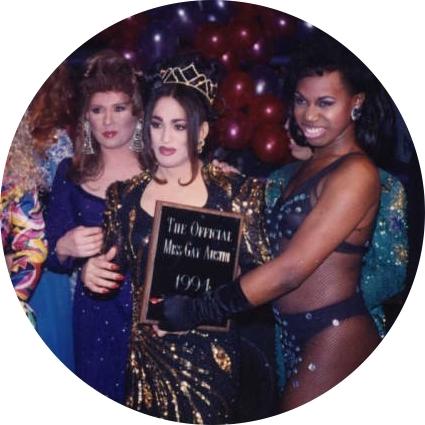
|
Rudy Cardona and Victor Lopez are the co-creators of a number of pageants: Miss Corpus Christi America, Miss Corpus Christi Metroplex, Miss Nueces County, Miss Texas Riviera, and Mr. Corpus Christi. These pageants were produced by Texas Crown Productions, which Rudy Cardona also owned. The Victor Lopez and Rudy Cardona Photograph Collection consists of photographs from the pageants, as well as the Houston Baile of 1994 and the Houston Pride parades of 1992-1994.
|
|
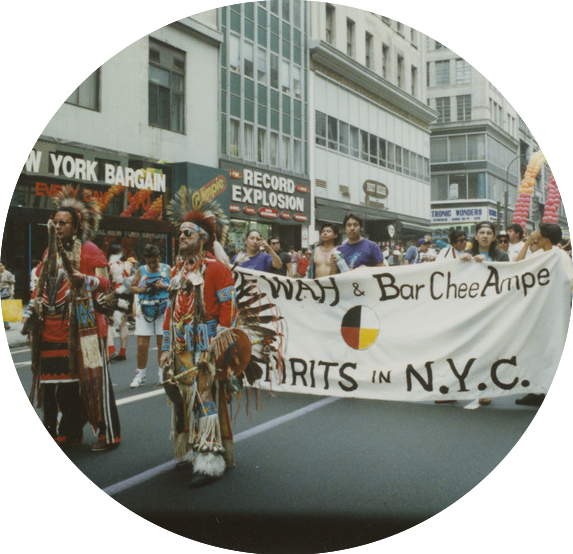
|
The Miscellaneous Photographs and Newspaper and Periodical Clippings (1950-2000) collections also contain a number of items related to trans Black, Indigenous, and People of Color. See our Search Tips & Terms page for some suggestions on how to locate materials within the DTA.
|
|
|
|
|
|
